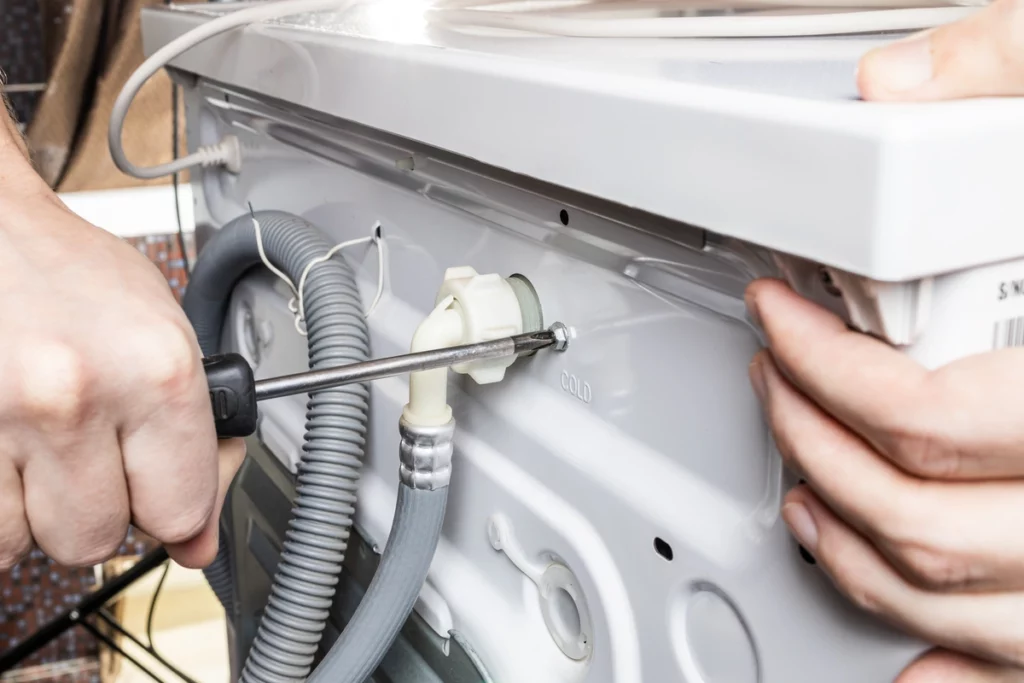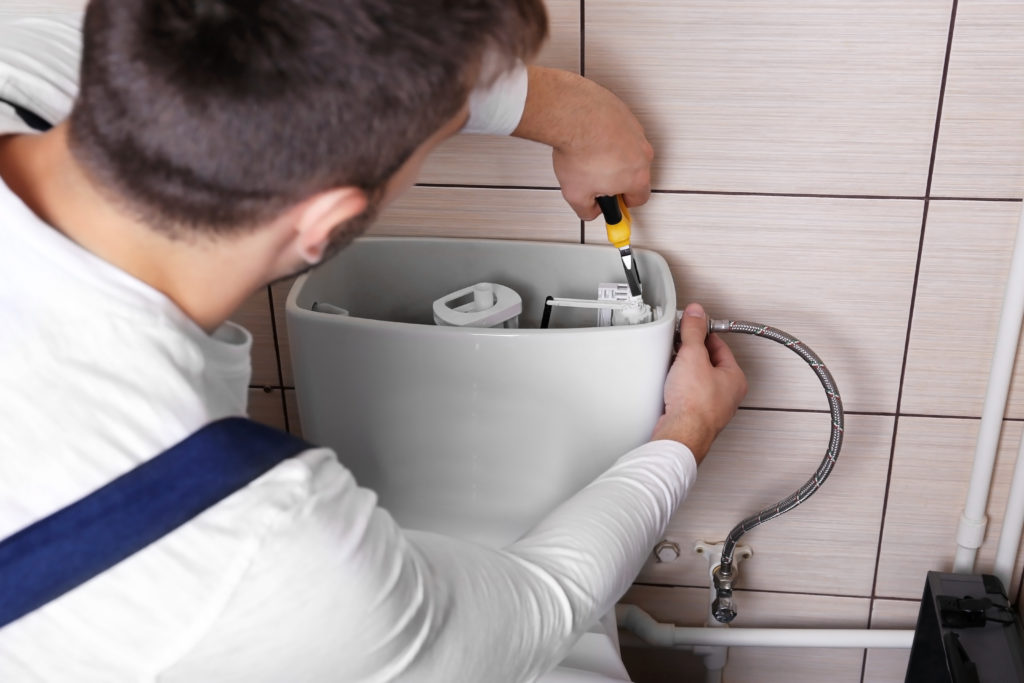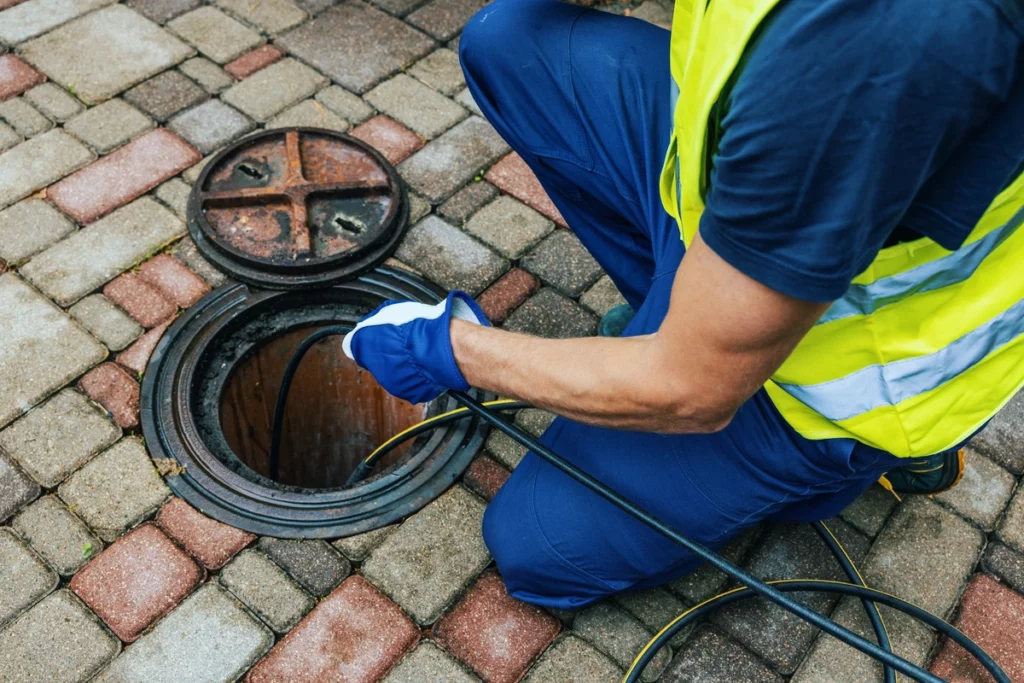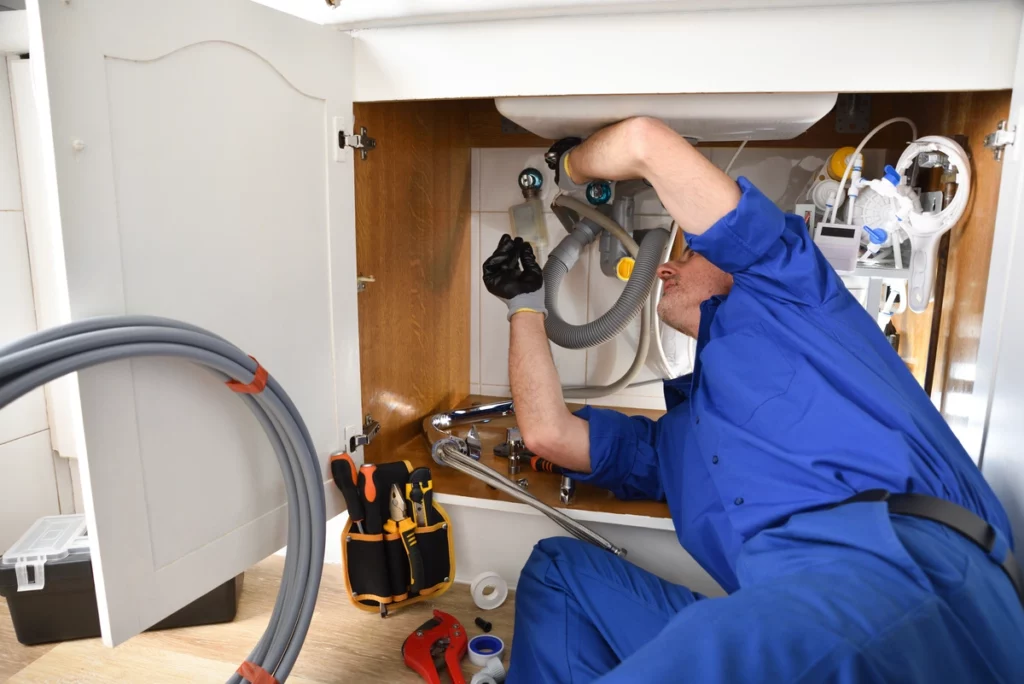Look out; there’s water on the floor of your laundry room! While some puddles of water only need minor repairs, that’s not always the case. A puddle can easily become a flood if left unchecked. Regardless of what brand or type of washer you own, it’s important to understand the underlying causes of leaks and find solutions to fix them.
While leaks can occur in both front-loading and top-loading washers, there are tips to pinpoint the problem. Once you identify the source of the leak, you can decide whether you can fix the issues yourself or hire a professional instead.
Tips Before You Begin
Before you try to diagnose what’s going on with your washing machine, it’s vital to turn off the machine, unplug the power cord from the outlet, and ensure that all the water valves are switched to the off position. This will help to prevent flooding from your plumbing and electrical hazards. Next, you’ll want to look at the area where the water is pooling to help determine the cause of the washing machine leak. Remember that water flows to the lowest point, so if your washing machine isn’t level, you’ll need to try and level it before addressing the leak.
Check for Leaks on Your Top-Load Washer
From clogged overflow tubes to unsecured hoses, there could be several reasons your top-load washer leaks. First, you’ll want to pinpoint whether the leak is coming from the front or back of the washer.
1) Leaking in the Front of the Washer
Let’s explore some reasons there is water leaking in the front of the washer:
Clogged Overflow Tube
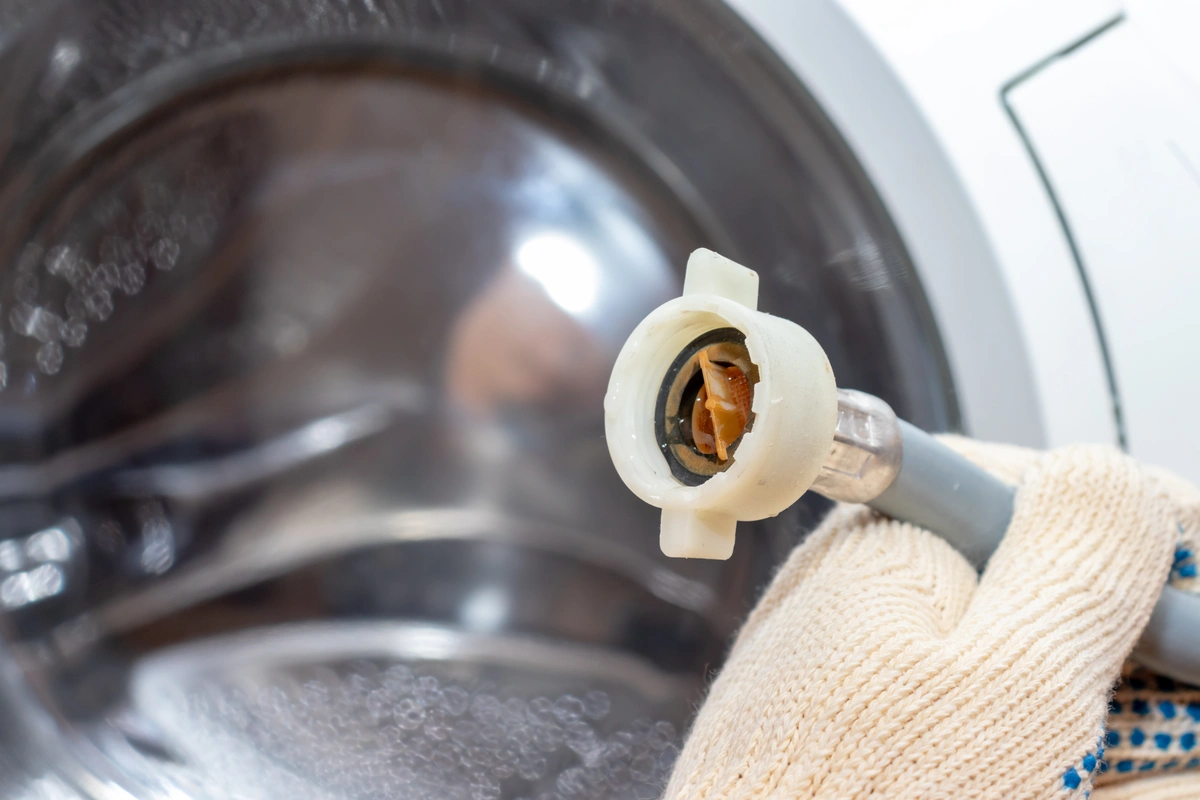
A common reason for leaks at the front of a top-load washer is usually due to a clogged or tilted overflow tube. These clogs can occur from an excess of detergent or not appropriately combining laundry products. Homes with a water softening system can struggle with this often because softer water needs less detergent for cleaning.
Adjusted Spray Rinse Timers
Washers that have a spray rinse function use a timer for their wash cycle. Interfering with it by manually advancing the timer can cause problems and leaks. This leads to longer spray rinse cycles and potential overflows.
Unleveled or Overloaded Washing Machine
Unbalanced, overloaded, or unleveled washers can lead to leaks. Make sure to reduce load sizes, level your machine, and look out for any pooling water.
2) Leaking in the Back of the Washer
If your top-load washer is leaking from the back, there are a few reasons for it, including:
Loose Hose Connection
Leaks can occur if there is a loose connection at the fill hoses. Inspect the rubber washers to see if they are in good shape. If they aren’t there, this could be the source of the leak. After replacing the hoses and hand-tightening the connections, you should be good. If the leak persists, you’ll need to replace the fill hoses because there may be a small hole that could lead to significant flooding.
Unsecured Hoses
A not properly-secured drainpipe can cause leaks. The drain hose needs to be fully inserted into the drainpipe. The drain hose is most likely clogged if a leak is still present, especially during a spin cycle. This means the clog isn’t allowing water to flow down the pipe, which leads to back-ups and overflows onto the floor.
The Drain Plug Isn’t Removed
New top-load washers come with a manufacturer’s drain plug. If you forgot to remove it before you installed the drain hose, it could lead to washing machine leaks. You can remove the hose to find the plastic plug that must be removed and discarded. Keep a bucket and towels nearby for excess water.
3) Leaks Under the Washer
If you have a top-load washer, leaks can also occur under the washer. This indicates there is a hole in the water pump. You’ll need to replace this part immediately to prevent water from falling into your motor and causing a failure. While this isn’t as easy a fix as other issues, you could tackle this problem using replacement parts and your washing machine user manual. You can always work with a professional contractor if you want to do something else.
Check for Leaks in Your Front-Load Washer
From unsealed gaskets to excess suds, there are several reasons why your front-loading washing machine is leaking. To find the source of the leak, you’ll need to check to see whether it’s coming from the front, back, or under the machine.
1) Front of the Washing Machine Leaks
Front-load washing machines have two common problems that can lead to leaks in the front of the washer: Door seal issues and unaligned doors.
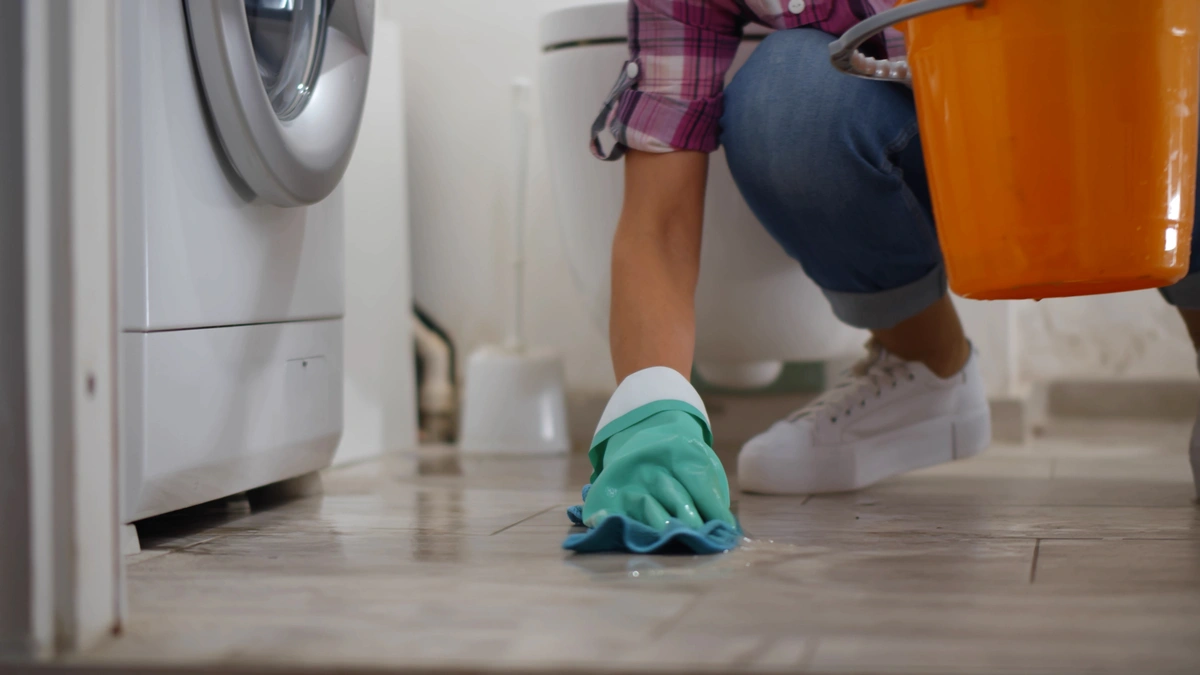
Leaking from the Door Seal
Door seal leaks are common for front-load washers. The rubber seal is called a gasket. If soil and soap build up on it, the rubber seal will leak. As a good practice, it’s best to clean your gasket weekly. Keep an eye out for punctures or trapped items as well.
Unaligned Door
If the door isn’t closing properly, leaking can occur in front-load washers. Try loosening and readjusting the hinges to make sure the alignment is correct.
2) Back of Washing Machine Leaks
It’s time to address the leak in the back of your washer. Whether it’s a water hose or excess suds, you want to avoid letting the water leak become a bigger problem.
Excess Suds
If you use too much detergent, it can leak in the back overflow area. One way to prevent this is by always using a small amount of high-efficiency (HE) detergent in your front load washer.
Drain and Inlet Water Hoses
A clogged drain hose or loose drain pipe can also lead to leaking, like top-load washing machines. Check them and clean as needed.
3) Washing Machine Leaking from the Bottom
A front-loading washing machine has an inner and outer drum. A leak coming from the bottom could be from the outer drum. That’s because it’s manufactured in two parts and then bolted together. If a leak occurs here, it will need to be professionally repaired or replaced.
What if the Washer Overflows?
A washer overflow is usually caused by a water valve or pressure switch issue inside the washing machine. The pressure switch controls when to fill the washer with water and how much water to use. If this component isn’t working, it can lead to overflows. After during off the power and water supply, you can inspect the water level tube for any blockages. If there are no apparent clogs, you’ll need to have the switch professionally replaced.
Seek Out Professional Plumbing Specialists
While some washing machine leaks can be easily repaired at home, others may require a trained eye to help. At AJ Alberts Plumbing, our skilled plumbers are here to help. For over 30 years, we have proudly served our customers with high-quality plumbing services. If you’re looking for experienced plumbing help to tackle your washing machine leaks, look no further.

